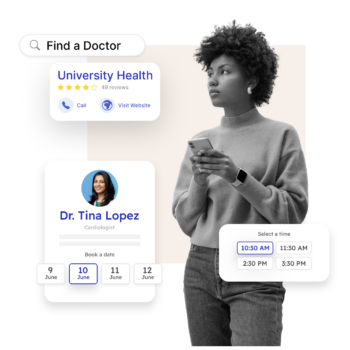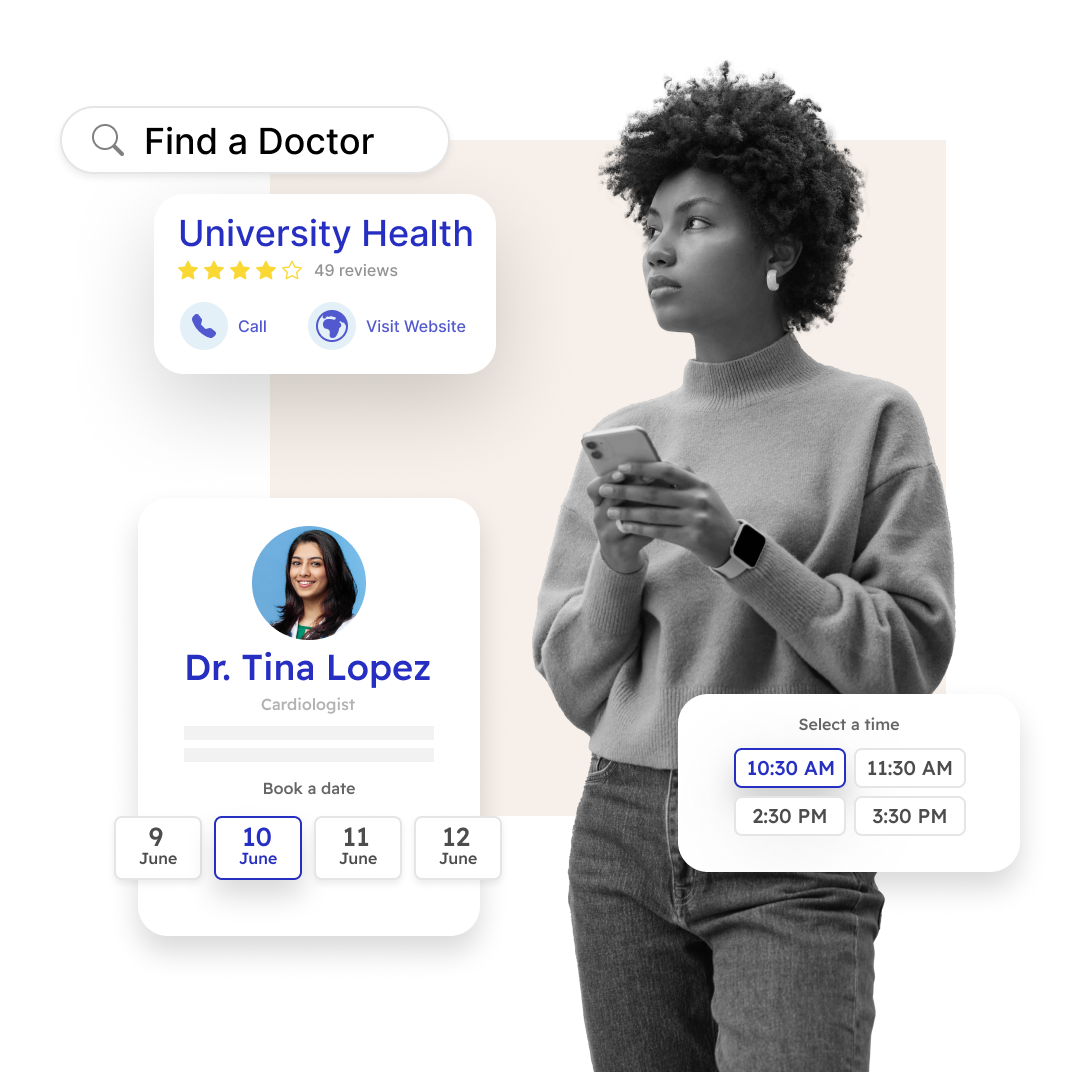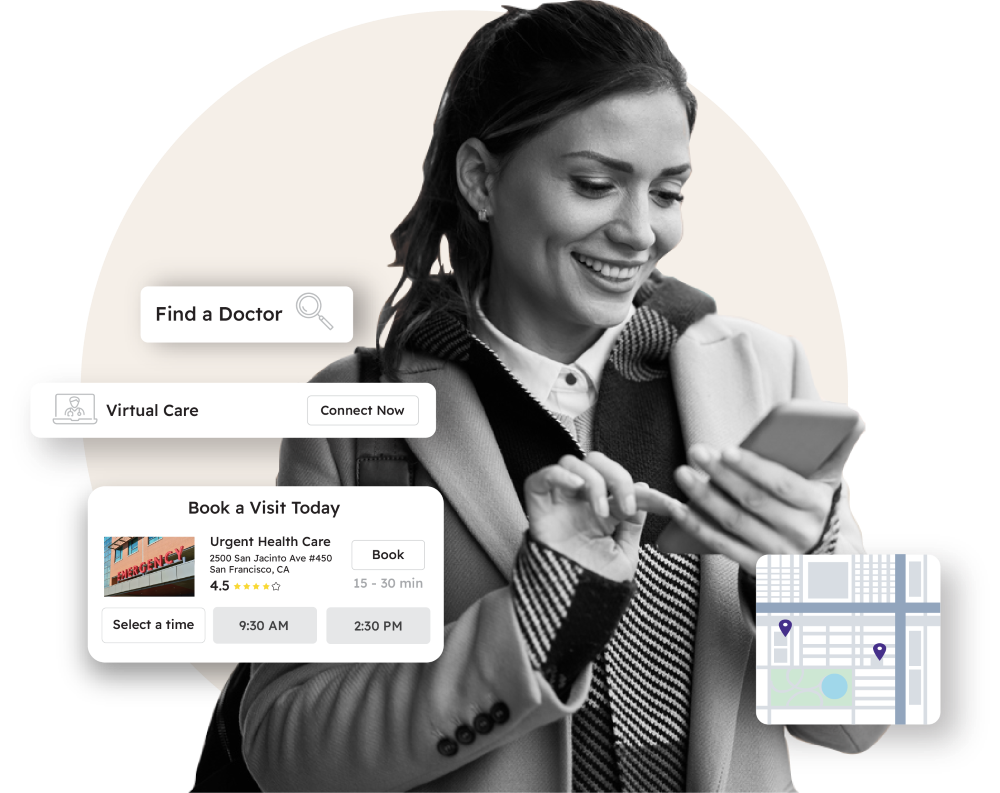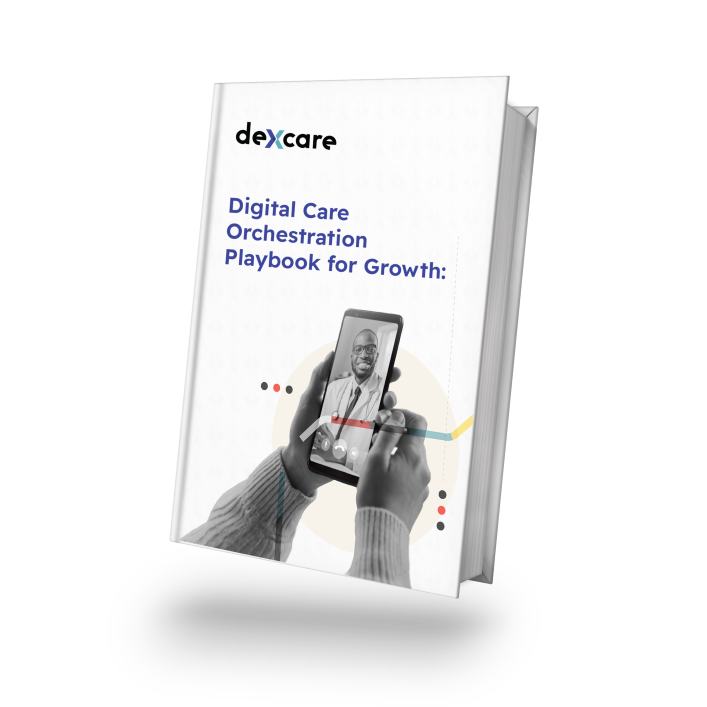New Orthopedic Care Experience Leads to Increase in Patients Seen and Improved Clinician Utilization
The Challenge
With 10 hospitals, and more than 45 clinics, a major Midwest health system set out to expedite and improve its orthopedic care. Previously, orthopedic patients needed to schedule appointments over the phone, or walk in to check availability. At times, open slots went unused or clinics were fully booked, unable to accommodate day-of patients facing sports-related injuries for sprains, strains, and fractures.
The clinics – treating 350 patients per month – are an alternative to urgent care and offer in-person appointments with a provider who specializes in orthopedic care. Most major insurance is accepted and the co-pay is the same as a doctor’s office visit. The clinics offer onsite imaging and can provide an expedited referral to an orthopedic specialist if needed.
The challenge was to improve patient access and utilization of non-operative providers throughout the health system. The desire was that patients could receive care when and where they wanted for an initial work-up and treatment of their orthopedic injuries. The goal was to balance patient demand with system resources to standardize clinical workflow, to work top-of-license, and to provide care for more patients.
The Solution
DexCare was selected to enable online scheduling and capacity optimization for its orthopedic specialty. After working closely with the DexCare implementation team, the orthopedics clinics offered time slots for booking in March of 2020. Patients now find, select and self-schedule directly online. The clinics offer have a hybrid approach, including both online and phone scheduling, and continue to support walk-in visits. Each morning, open time slots are made available online and sorted by clinic.
DexCare’s platform allowed the health system to make the operational changes and resource balancing to enable providers to work at top-of-license, to treat more patients, and to provide the best-fit, highest-quality treatment.
“I believe that online scheduling has made a significant difference. Before getting in their car, patients want to know they will be seen. They want the convenience and peace of mind that online scheduling provides. The results so far look very strong proving that online scheduling is driving patient volume. There is a great opportunity to continue to expand this capability to providers who may not have a full schedule right now. We have a tremendous amount of volume that needs to be seen and it’s about opening that access up.”
— Emily Will, Orthopedic Clinic Manager
“Health care consumers want quick, convenient access to care. Our collaboration with DexCare enables us to deliver a better patient experience that differentiates us in the market. This has made a significant impact on our growth in patient visits and efficiency of our care providers. We are able to see more patients with the same level of resources.”
— Chief Digital Officer, Large Midwest Health System
The Results
The health system now provides more patient access with their existing resources. Providers are work at top-of-license – with PAs performing initial clinical assessment, ordering and coordinating imaging upfront, and assessing the right specialist for clinical needs. This new approach reassures patients with low-acuity concerns that they don’t have a fracture or a major issue, informs them of the right treatment regimen, and expedites care for highly likely surgical candidates to the most appropriate orthopedic specialist. This change has diverted visits that would have gone to urgent care, to the emergency department, or ended up on the orthopedic surgeon’s schedule for an initial consult. Surgeons now see more patients in need of surgical intervention, thereby increasing satisfaction and reducing provider burnout.
The addition of the online scheduling also enables the orthopedic clinics to provide a modern, self-serve experience to patients who need of immediate care in an increasingly competitive market. This approach reduces unused inventory, increases clinician utilization, and ensures that highly sought appointments don’t go unfilled.
Health system experienced an overall reduction of unused open slots and higher provider utilization
2X
doubled patient visits from July 2020 to July 2022
~75%
of appointments booked online
45%
repeat patients
19%
of net new patients (new EMR record created)






